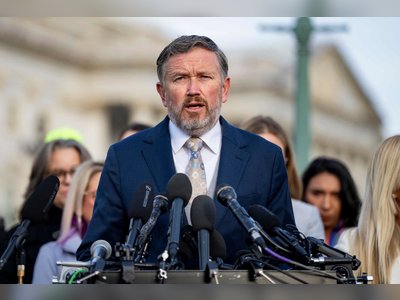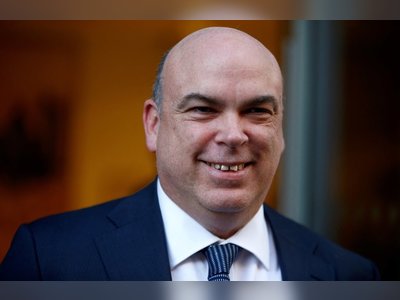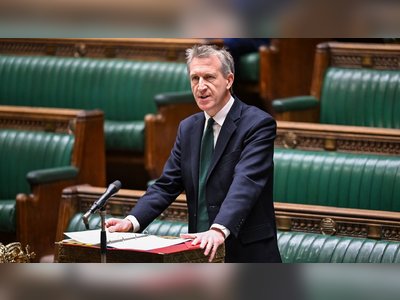Caribbean Reparations Commission Seeks ‘Mutually Beneficial’ Justice from UK
CARICOM body emphasises collaboration over financial disruption in its first official UK visit
A delegation from the CARICOM Reparations Commission (CRC) arrived in the United Kingdom this week for a landmark visit aimed at advancing reparatory justice for the legacies of transatlantic slavery and colonialism.
Chair Sir Hilary Beckles urged that the agenda is framed not as an attempt to “break the British Treasury” but instead to forge a future of “mutual strategies for mutual benefits.”
In a press conference, Sir Beckles stressed that the Caribbean’s demand originates from a historical reality in which African people were kidnapped, enslaved and Caribbean societies were structurally stripped of resources, leaving newly independent states with “bankrupt treasuries [and] no economic strategies.” He declared that British institutions had derived lasting benefit from that extraction and affirmed that the movement is not about replicating such an extractive model.
The six-member CRC delegation, which includes senior reparations figures from Barbados, Guyana, Grenada and the Bahamas, will engage with UK parliamentarians, academics, Caribbean diplomats and diaspora organisations throughout the visit.
Ahead of their round of meetings, Sir Beckles said the focus is on public education, historical accountability and the structural consequences of slavery—such as indebtedness, under-investment in health and education, and the climate vulnerability faced by small Caribbean states.
While the CRC reiterates its call for a full formal apology and debt cancellation among its demands, it emphasised that the process should be grounded in collaboration rather than confrontation.
“We are not seeking to mirror an extractive agenda,” Sir Beckles said.
“What we envisage is a restorative agenda so that we can clean up the mess left by colonialism and then move forward together.”
The visit comes amid shifting global dynamics in which calls for reparations are gaining traction, including in external forums such as climate talks.
Observers note that while UK public awareness of its role in the transatlantic slave trade remains limited—surveys suggest over eighty per cent of adults are unaware Britain forcibly transported more than three million Africans to the Caribbean—the CRC says its UK engagement marks a strategic deepening of dialogue.
As the delegation advances its advocacy during the four-day mission, they will seek to establish pathways toward bite-sized outcomes, including support for education programmes, heritage initiatives and structural resilience in Caribbean states.
Their approach invites the UK to partner rather than merely concede, offering a template for restorative justice that aligns present-day stability and shared benefit.
Chair Sir Hilary Beckles urged that the agenda is framed not as an attempt to “break the British Treasury” but instead to forge a future of “mutual strategies for mutual benefits.”
In a press conference, Sir Beckles stressed that the Caribbean’s demand originates from a historical reality in which African people were kidnapped, enslaved and Caribbean societies were structurally stripped of resources, leaving newly independent states with “bankrupt treasuries [and] no economic strategies.” He declared that British institutions had derived lasting benefit from that extraction and affirmed that the movement is not about replicating such an extractive model.
The six-member CRC delegation, which includes senior reparations figures from Barbados, Guyana, Grenada and the Bahamas, will engage with UK parliamentarians, academics, Caribbean diplomats and diaspora organisations throughout the visit.
Ahead of their round of meetings, Sir Beckles said the focus is on public education, historical accountability and the structural consequences of slavery—such as indebtedness, under-investment in health and education, and the climate vulnerability faced by small Caribbean states.
While the CRC reiterates its call for a full formal apology and debt cancellation among its demands, it emphasised that the process should be grounded in collaboration rather than confrontation.
“We are not seeking to mirror an extractive agenda,” Sir Beckles said.
“What we envisage is a restorative agenda so that we can clean up the mess left by colonialism and then move forward together.”
The visit comes amid shifting global dynamics in which calls for reparations are gaining traction, including in external forums such as climate talks.
Observers note that while UK public awareness of its role in the transatlantic slave trade remains limited—surveys suggest over eighty per cent of adults are unaware Britain forcibly transported more than three million Africans to the Caribbean—the CRC says its UK engagement marks a strategic deepening of dialogue.
As the delegation advances its advocacy during the four-day mission, they will seek to establish pathways toward bite-sized outcomes, including support for education programmes, heritage initiatives and structural resilience in Caribbean states.
Their approach invites the UK to partner rather than merely concede, offering a template for restorative justice that aligns present-day stability and shared benefit.









